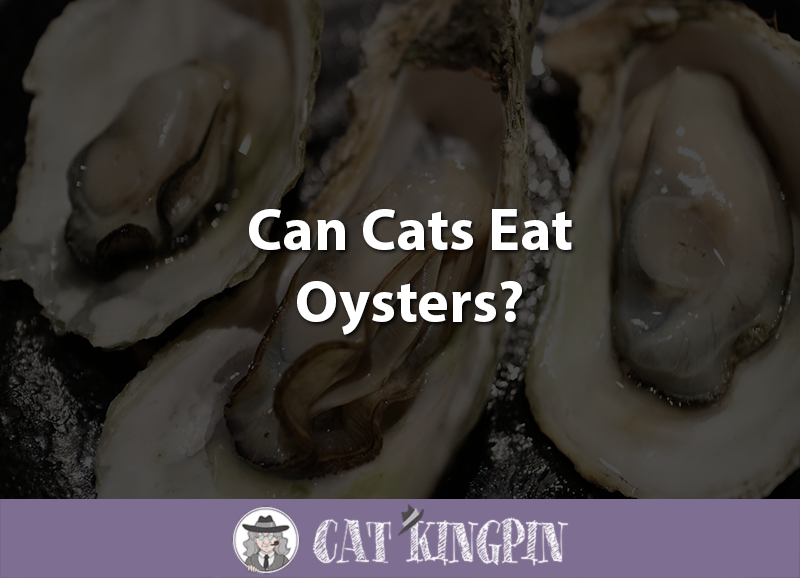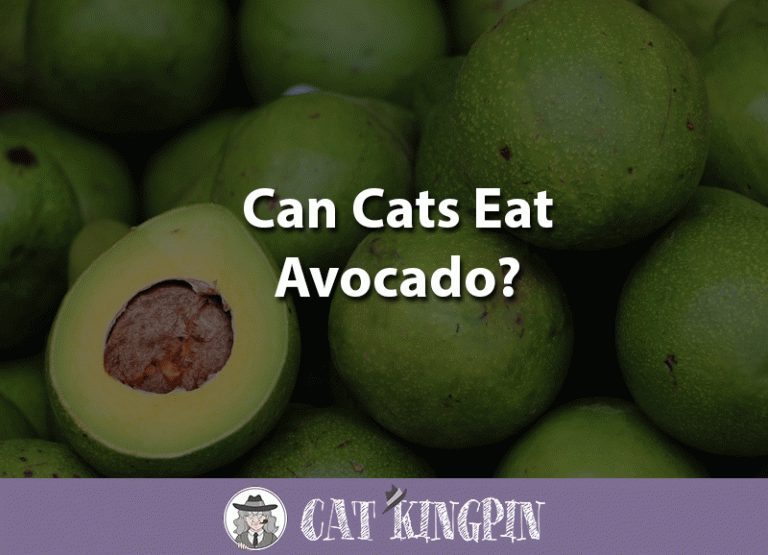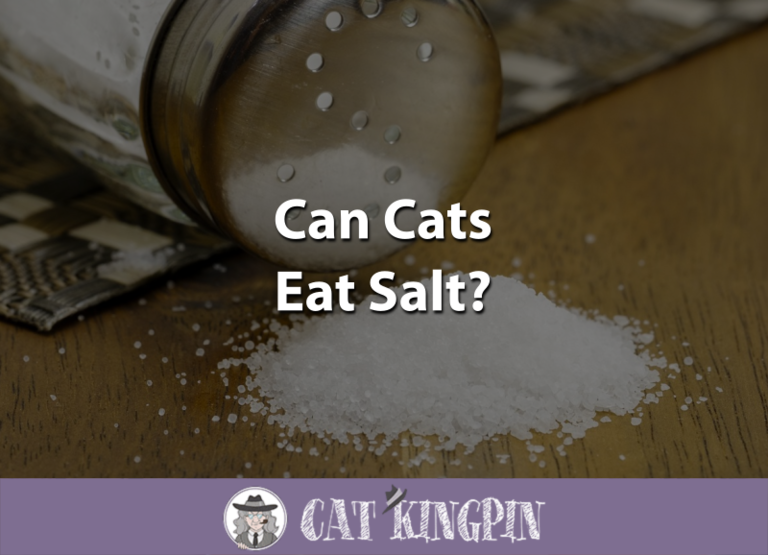Can Cats Eat Oysters?
My wife hates them, but I enjoy the occasional raw oyster. However, I have to admit that I don’t know if it’s actually the oysters I like, or if they are merely a vehicle for the lemon juice and cocktail sauce.
If you happen to be slurping down some oysters while your cat’s around, you might be wondering if it would be okay to let them have a bite. As we will see, cooked oysters are okay as an occasional treat, but it’s probably better not to give cats raw oysters.
In this article, we’ll cover the following:
- Cats and Oysters, What You Need to Know
- Can Cats Eat Oysters?
- Can Kittens Eat Oysters?
- Benefits/Drawbacks to Cats Eating Oysters
- Healthy Alternatives to Oysters for Cats

This content has been reviewed and approved by our in-house Veterinarian for accuracy.
Cats and Oysters, What You Need to Know
Oysters are salt-water, hard-shelled creatures that are consumed as a delicacy by people around the world. Being a mollusk, oysters are part of a large group of invertebrate animals that includes snails, slugs, clams, octopuses, squid, and cuttlefish.
As you might imagine, cats in the wild would rarely come into contact with an oysters. However, as the following video shows, some cats do enjoy oysters given to them by their human companions:
Since cats are meat-eaters, it’s not surprising to see one eating oysters. In fact, being obligate carnivores, meat is the only food cats really need to eat and they derive little to no nutrition from plants and vegetables.
But, are oysters a good source of meat for cats? Would they like them?
From a nutritional standpoint, oysters aren’t a bad food. One hundred grams of raw oysters contains about 68 Calories, 7 grams of protein, and significant amounts of vitamin B12, vitamin D, iron, zinc, copper, and selenium.
Can Cats Eat Oysters?
While cooked oysters are generally okay to give cats, raw oysters carry some risk of sickness from bacteria and parasites.
It’s unlikely your cat would get sick from eating raw oysters, but why take chances with their health? Instead, just stick with providing them with the occasional cooked oysters as a treat.
Can Kittens Eat Oysters?
Because of their immature immune and digestive systems, kittens are susceptible to illness. Bacteria and parasites that could be in raw oysters are even more likely to make a kitten sick than an adult cat.
Make sure any oysters you feed your kitten are cooked first, and don’t contain any additives like salt, spices, or horseradish. Even then, it should be given only as on occasional treat and in small quantities.
High-quality, grain-free kitten food has all the nutrients a growing kitten needs. So, it’s best to stick with something like Wellness kitten food or else Taste of the Wild kitten food.
Benefits and Drawbacks to Cats Eating Oysters
As we have learned, cooked oysters can provide protein that is required in your cat’s diet. However, raw oysters can be contaminated with a bacterium known as Vibrio, which has been identified as a source of human illness.
Vibrio usually only affects people with compromised immune systems. Most commonly associated with eating raw oysters, the bacteria normally causes gastrointestinal symptoms, but in serious cases has resulted in the loss of limbs and even death.
While cats are not known to be affected by Vibrio, it’s best to be safe and only give your cat cooked oysters.
Additionally, oysters can contain high levels of the metal cadmium. Cats are particularly sensitive to some types of heavy metal poisoning, so it’s best to limit the amount of oysters you give to your cat.
Perhaps most importantly, oysters are a known source of food allergy in humans and might also be for cats. Food allergies are the third most common type of feline allergy, surpassed by only flea bite allergies and sensitivity to inhaled substances.
In cats, food allergies usually manifest themselves as skin reactions. Symptoms of food allergies in cats can include:
- Sneezing, snoring, coughing, and wheezing
- Itchy skin, scratching, and chewing
- Ear infections
- Runny eyes
- Vomiting
- Diarrhea
- Swollen paws
- Possible farting
If you do decide to give your cat oysters, make sure you stay alert for any of the above symptoms.
Healthy Alternatives to Oysters
Adult cats are fine to have a little bit of cooked oysters from time to time. But, with all of the great options out there, why not try a seafood-themed cat food? There are also seafood cat treats that can satisfy your cat’s craving for oysters.
There’s no rush to feed oysters to your cat, however. They don’t need it to survive, so any high-quality, meat-based cat food will be great for them, such as Wellness or Taste of the Wild cat foods.
So, can cats eat oysters?
Well, now we know that cats can eat oysters. We also learned you should never feed raw oysters to your cat or kitten because of the bacteria and parasites that might make your cat sick if present.
Most importantly, we saw that there are many safe and healthy seafood cat foods and treats that are great alternatives for your kitty.
If you have any questions or would like to share a story about your cat and oysters, please tell us in the comments below. We’d love to hear from you!






